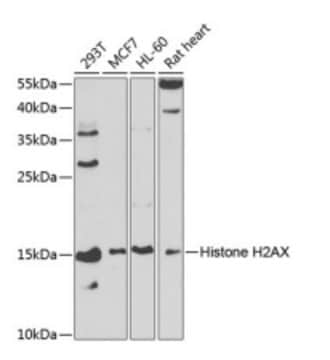OP64
Anti-p21WAF1 (Ab-1) Mouse mAb (EA10)
liquid, clone EA10, Calbiochem®
Synonyme(s) :
Anti-CIP1, Anti-SD11, Anti-p21, Anti-WAF
About This Item
Produits recommandés
Source biologique
mouse
Niveau de qualité
Forme d'anticorps
purified antibody
Type de produit anticorps
primary antibodies
Clone
EA10, monoclonal
Forme
liquid
Contient
≤0.1% sodium azide as preservative
Espèces réactives
human
Ne doit pas réagir avec
mouse, rat
Fabricant/nom de marque
Calbiochem®
Conditions de stockage
do not freeze
Isotype
IgG1
Conditions d'expédition
wet ice
Température de stockage
2-8°C
Modification post-traductionnelle de la cible
unmodified
Informations sur le gène
human ... CDKN1A(1026)
Description générale
Application

Flow Cytometry (2 g/ml or use Cat. No. OP64F; see application references)
Frozen Sections (5 g/ml or use Cat. No. OP64F)
Immunoblotting (1-3 g/ml)
Immunofluorescence (1-5 g/ml or use Cat. No. OP64F)
Immunoprecipitation (2 g/sample)
Paraffin Sections (5 g/ml or use OP64F; heat pre-treatment required; see comments and application references)
Conditionnement
Avertissement
Remarque sur l'analyse
Any cell line expressing wild-type p53 (e.g. Hs27 or U2OS treated with DNA-damaging agents) or skin or colon tissue
Autres remarques
Chen, Y.Q., et al. 1995. Int. J. Oncology7, 889.
Deng, C., et al. 1995. Cell82, 675.
El-Deiry, W.S., et al. 1995. Cancer Res.55, 2910.
Waldman, T., et al. 1995. Cancer Res.55, 5187.
Elbendary, A., et al.1994. Cell Growth Diff.5, 1301.
El-Deiry, W.S., et al. 1994 Cancer Res.54, 1169.
Li, R., et al. 1994. Nature371, 534.
Michieli, P., et al. 1994. Cancer Res.54, 3391.
Noda, A., et al.1994. Exp. Cell Res.211, 90.
El-Deiry, W.S., et al.1993. Cell75, 817.
Gu, Y., et al. 1993. Nature366, 707.
Harper, J.W., et al.1993. Cell75, 805.
Xiong, Y., et al.1993. Genes Devel.7, 1572.
Xiong, Y., et al.1993. Nature366, 701.
Xiong, Y., et al.1992. Cell71, 505.
Informations légales
Vous ne trouvez pas le bon produit ?
Essayez notre Outil de sélection de produits.
Code de la classe de stockage
11 - Combustible Solids
Classe de danger pour l'eau (WGK)
WGK 1
Point d'éclair (°F)
Not applicable
Point d'éclair (°C)
Not applicable
Certificats d'analyse (COA)
Recherchez un Certificats d'analyse (COA) en saisissant le numéro de lot du produit. Les numéros de lot figurent sur l'étiquette du produit après les mots "Lot" ou "Batch".
Déjà en possession de ce produit ?
Retrouvez la documentation relative aux produits que vous avez récemment achetés dans la Bibliothèque de documents.
Notre équipe de scientifiques dispose d'une expérience dans tous les secteurs de la recherche, notamment en sciences de la vie, science des matériaux, synthèse chimique, chromatographie, analyse et dans de nombreux autres domaines..
Contacter notre Service technique







